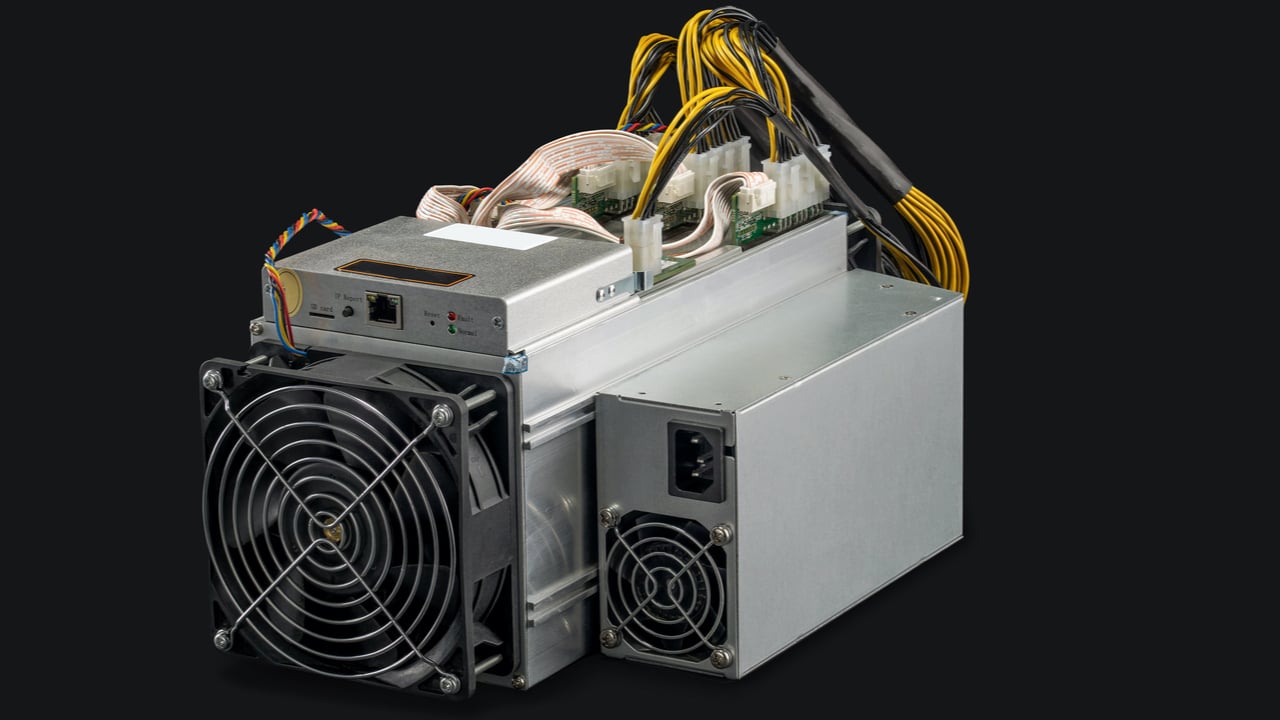 During the first quarter of 2022, Bitcoin’s hashrate averaged between 180 to 200 exahash per second (EH/s) and during the course of that time, 13,233 block rewards were found by 16 mining pools. According to three-month statistics, Foundry USA was the network’s top mining pool in terms of hashrate percentage, as the bitcoin mining operation […]
During the first quarter of 2022, Bitcoin’s hashrate averaged between 180 to 200 exahash per second (EH/s) and during the course of that time, 13,233 block rewards were found by 16 mining pools. According to three-month statistics, Foundry USA was the network’s top mining pool in terms of hashrate percentage, as the bitcoin mining operation […]
In one instance, Bitcoin miners are helping oil companies cut flaring by using generators running on natural gas that would otherwise be burned into the atmosphere.
It's a controversial topic in the blockchain community that comes up from time to time — just how much impact Bitcoin (BTC) mining has on the environment. Last year, Tesla's CEO Elon Musk brought forth a sharp correction in the cryptocurrency market by tweeting that his namesake car company would abandon plans to accept BTC, citing "rapidly increasing use of fossil fuels for Bitcoin mining and transactions." However, a recent report published by CoinShares notes that despite the widespread use of coal, oil, and gas for Bitcoin mining, the network accounts for less than 0.08% of the world's CO2 production.
During an exclusive interview with Cointelegraph, Kristian Csepcsar, chief marketing officer at Slush Pool, the oldest Bitcoin mining pool, gave insight on what he believes are current misconceptions regarding Bitcoin mining's environmental impact. When asked about the drawbacks of using electricity derived from oil and gas mine Bitcoin, Csepcsar says there are more than meets the eye:
We're literally burning the gas into the atmosphere just because it's not economical to do anything with it [Flaring]. Instead, we can put it into a motor to produce electricity and use that to mine Bitcoin.
Flaring is the process of burning surplus natural gas during oil extraction due to a lack of pipeline infrastructure to bring it to market. Recently in the U.S. and Canada, Bitcoin miners have found clever ways to instead funnel the natural gas to generate electricity, instead of simply burning it into the atmosphere, thereby solving a critical environmental problem.
But Csepcsar remains skeptical of certain renewable sources of Bitcoin mining, calling them "marketing noise.", specifically, solar energy. As tells Cointelegraph:
On our blog, we published research that we are not big promoters of solar mining; when you calculate the profitability, it's not that good; it's a very tough business.
Cespcsar further elaborates that approximately 70% of all solar panels are produced in China and that there has not been a lot of research on the environmental impact during their manufacturing process:
Producing them creates a lot of harmful chemicals. And nobody talks about that. Everyone just thinks that the solar panels grow on trees, and then the sun shines on them. But, no, the process of creating them is brutal.
On a final note, Slush Pool does not possess metrics regarding the source of energy used by its Bitcoin miners. When asked why this is, Cespcsar gave a surprising answer: (but perhaps true to the philosophy of decentralization and privacy)
We don't want to look at that as a pool operator. In order to have those numbers, we would need to KYC our miners, conduct audits on their operations, or even filter transactions [for analytics]. That's not the ethos we want to keep.

Over 15,000 users, mainly small individual miners, are part of the still-growing Braiins (Slush Pool) ecosystem.
All things have their humble beginnings; in 2010, the first Bitcoin (BTC) mining project was created in Prague, Czechia, and was simply called Bitcoin.cz. Soon afterward, founder Mark "Slush" Palatinus decided to move on to other ventures, such as creating the world's first cryptocurrency hard wallet, Trezor. As a result, Braiins, a company doing embedded Linux development and research, took over the mining pool and renamed it accordingly.
Fast forward to today, Braiins (Slush Pool) has grown to become one of the biggest Bitcoin mining pools. There are now over 15,000 users in the space, with its total hash rate accounting for 5% to 8% of that of the overall Bitcoin network. The company derives 100% of its income via BTC and charges a 2% commission from its mining firmware. In an exclusive interview with Cointelegraph, Kristian Csepcsar, chief marketing officer at Braiins, explained why crypto enthusiasts are still choosing the world's oldest mining pool after all these years, despite so many competitors available.
One of the first aspects discussed was why firmware is so critical in the process, to which Csepcsar gave the example of grid balancing in Texas. He explained, "You turn on the mining machine when there's a lot of electricity in the grid, but you might have to turn them off in milliseconds when demand is high from households."
"Now imagine a big farm of 60,000 machines; it's very hard to regulate them without the aid of firmware, which solves the problem easily."
But it's not just the technological aspect that's alluring novel miners to the Braiins mining pool. It's also about the ethos of the company. "Other mining pools want to support as many forks of Bitcoin as possible because it's just a revenue stream and is good for business," said Csepcsar. "But we are not about that; during the Bitcoin Cash (BCH) fork in 2017, we decided to stay true to our central vision and not expand our mining pool to BCH because it was just a fad."

Kristian Csepcsar at Braiins headquarters | Source: Kristian Csepcsar
And true to his words, Braiins today does not mine any other digital currencies other than BTC. Contrary to popular belief, Braiins isn't sitting on a huge pile of digital money as you'd expect. Csepcsar explains:
"Nobody expected Bitcoin to succeed that quickly. So we were selling a lot more initially [when the price was very low] to fund operations. In addition, there was a hack of the cloud service early on that resulted in 3,000 BTC stolen. So like, we're not sitting on Satoshi level wealth."
When asked about how the firm stays strong cryptocurrency bear markets, when the price of digital currencies can often plunge 70% to 80% in a very short period of time, Csepcsar responded:
"The good thing is that we started early. All the co-founders were already far enough in their careers to have money from their previous job in big tech companies. We're Bitcoiners, and we don't believe in numbers going up forever. There are always going to be crashes. And so we prepare for that."
In addition, Braiins is fiercely independent, having never accepted money from venture capitalists or external investors. Some crypto enthusiasts would argue there is a need for centralized institutions, such as security regulators, to step in and regulate the volatility of digital currencies, so investors and businesses alike could plan for slow and steady (albeit controlled) growth. But not Csepcsar, as he tells Cointelegraph:
"Imagine if we traded Bitcoin the same as the NASDAQ, eight hours a day, Monday to Friday instead of 24/7. Bitcoin is growing fast like an exponential technology, and we want it to remain that way. Restrictions make everything slower and less efficient."
 Bitcoin miners have started to signal for Taproot activation and crypto supporters are looking forward to the largest bitcoin update in almost four years. The mining operation Slush Pool mined the first block signaling for Taproot and since then the pools Foundry and F2pool have joined in on signaling as well. Bitcoin Block: 681,458 Signals […]
Bitcoin miners have started to signal for Taproot activation and crypto supporters are looking forward to the largest bitcoin update in almost four years. The mining operation Slush Pool mined the first block signaling for Taproot and since then the pools Foundry and F2pool have joined in on signaling as well. Bitcoin Block: 681,458 Signals […]